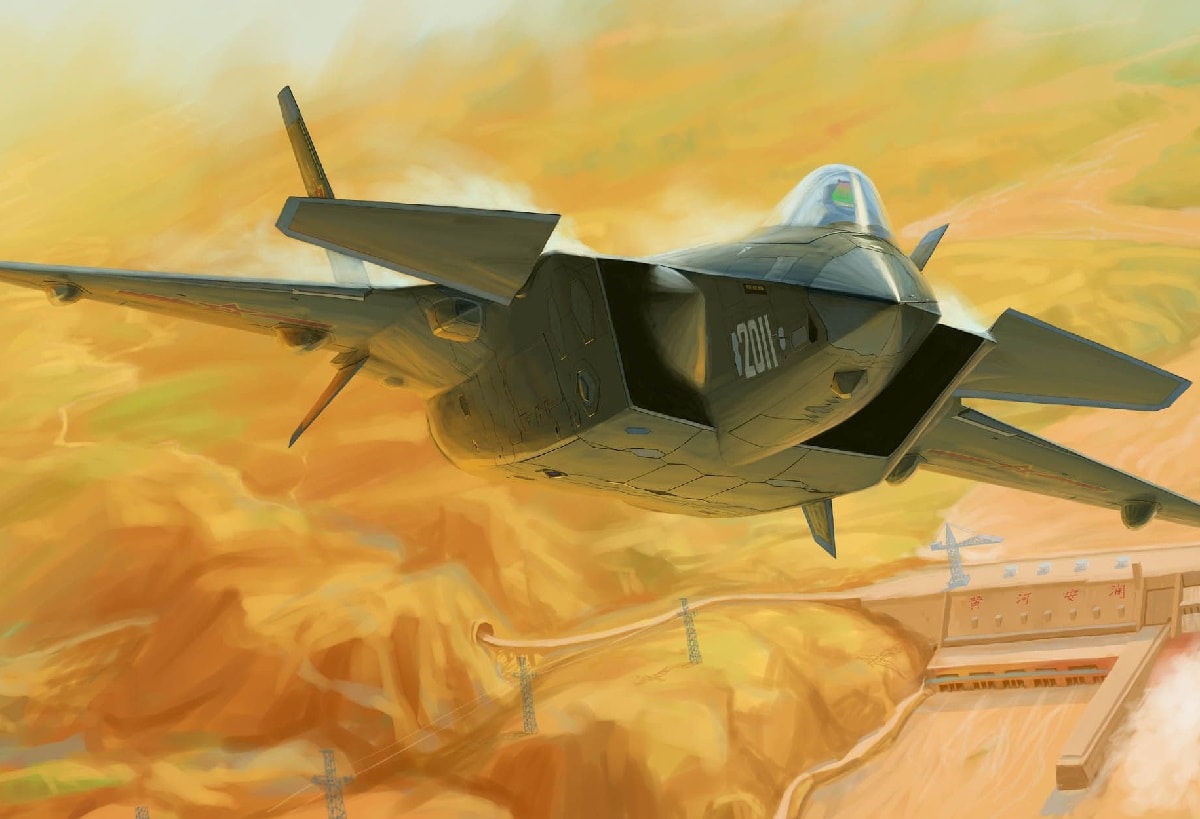Is China gearing up for a war of conquest against Taiwan?
Well, the easy answer is ‘yes.’ But everything beyond that, at least for me, is all a giant guessing game. All we can do is make the best intelligent guesses on the subject based on the data we have – and prepare for the worst.
And that data tells us one thing: China does’t have good intentions toward Taiwan; that much is clear. It also seems top U.S. military officials fear China could even be gearing up to do something on Taiwan as early as next year.
Beijing, since at least the 1980s but moving at an accelerated pace since the 1995-1996 Taiwan Crisis, has been working to ensure that it could deter or defeat U.S. military forces using anti-access and/or area-denial weapons and strategies along its coastline and now out as far as the second-island chain.
Of course, the biggest reason to have such weapons and employ such a strategy is to ensure that if China does wish to invade Taiwan, it can do so without a U.S. military intervention that would hamper such plans.
In fact, I would argue the vast majority of China’s military expenditures over the last twenty years have had something to do with a Taiwan contingency.
So with all that said, I reached out to several experts I have had the pleasure of working with in various capacities over the years to get their take. I asked a very straightforward question: Do you think a Chinese invasion of Taiwan is inevitable, and if so, when will it come?
Daniel Blumenthal, Senior Fellow, American Enterprise Institute: “The CCP will likely escalate its decades-long psychological coercion campaign to sap the morale of Taiwan’s public and isolate the island. To do this effectively, China needs to threaten invasion credibly.”
Daniel L. Davis, Senior Fellow, Defense Priorities: “Until a thing happens, nothing is outright inevitable – but the likelihood of a Chinese move to take Taiwan by force is as close to inevitable as it gets.
The reason: China may already have passed the point of no return in their thinking that the United States has embarked on a course to prevent Taiwan from ever reunifying with China, no matter how long or under what conditions. Outwardly the U.S. claims we remain committed to the “one China” principle and don’t support Taiwanese independence, but with our every action we demonstrate we are opposed to ‘one China.’
An important point: China likely believes that Washington’s guiding strategic intent is to actively weaken and undercut Beijing in the economic realm (we nearly say as much in the new National Security Strategy). Combined, I believe Xi Jinping has concluded that there is no viable path to seeking cooperation or accommodation with the United States, and therefore he may likewise have decided the best way to prevent the loss of Taiwan from Beijing’s control and to mitigate America’s ability to undermine them in the Asia Pacific. He will move on Taiwan at a time of his choosing (and when it is likely the most inconvenient for Washington).”
Ian Easton, Senior Director, Project 2049: “Nothing is inevitable, and the future hasn’t yet been written. But barring a historic change in US policy or act of God, a CCP attack on Taiwan is coming. The entire situation is structurally unstable and strategically unsound. When will the PLA go kinetic, how will they do it, and how will the conflict will play out? I suspect the answers will surprise the US government just as much as everything else Xi Jinping has done.”
Wallace Gregson, Former Assistant Secretary of Defense, Obama Administration: “China will invade Taiwan when they are convinced Taiwan, the U.S., and our allies will not be able to prevent it or to respond effectively.”
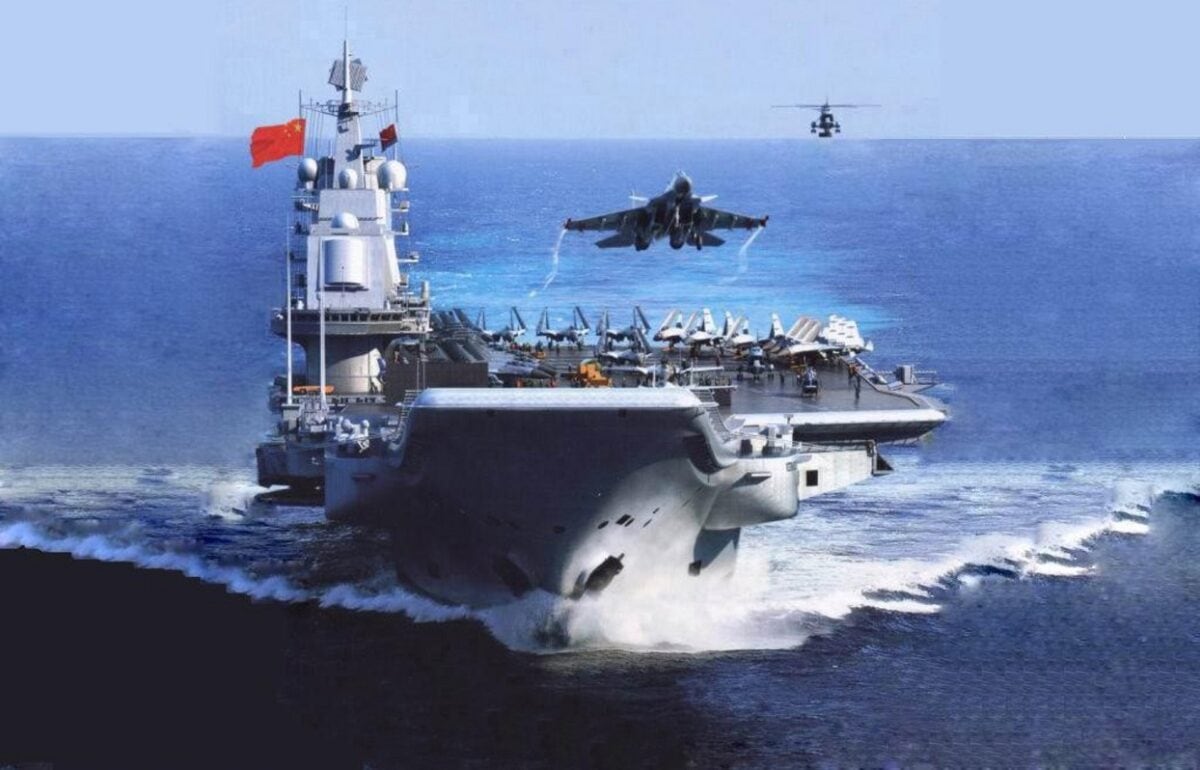
Image: Chinese Internet.
James Holmes, Professor, U.S. Naval War College: “Wise historians will tell you nothing is inevitable, and it’s not. Negotiations specialists will tell you that creating a sense of inevitability is an asset when hard bargaining. If I’m Xi Jinping and I go on record, loudly and often, promising to subdue Taiwan, and if I connect that promise to some of the deepest passions in Chinese society — namely sovereignty and national dignity — then I have obligated myself to follow through, and made myself accountable in the eyes of the Chinese people. I will suffer the political and perhaps physical consequences if I don’t deliver.
Taking an uncompromising position sends a powerful signal to others, but it also means Xi has painted himself into a corner. The only way to deter him is to convince him that the repercussions of trying and failing would be worse than the repercussions of forgoing the attempt. That’s what we, Taiwan, and our allies need to convince him of by showing him we stand a good chance of thwarting aggression.”
Russel Hsiao, Executive Director, Global Taiwan Institute: “In my view, whether Xi will decide to invade Taiwan—at least in the near term—is likely based more on political and military conditions than an immediate deadline. It will depend on a correlation of capabilities, intent, and confidence. The conditions can change based on these variables and thus would be affected not only by what Beijing does but also by what Taiwan, the United States, and her allies, as well as partners, do.
Beijing is watching the West’s response to Ukraine very closely, but barring an escalation that spirals out of control, the political and military conditions that I believe would force Xi to invade are not there.
In the near term, Xi will continue to rely on co-optation and coercion against Taiwan to pursue its dual objective of deterring independence and pushing for unification.”
Robert Manning, Distinguished Fellow, Stimson Center: “For more than two years, the chattering class, and lately some in the administration, have been crying wolf that a PRC invasion of Taiwan is evident.
I don’t see the evidence for this.
They are not making the preparations they would need to make (see John Culver’s Carnegie paper). They have little to no amphibious lift capability. Think of what it took for U.S. troops in World War II in terms of time and manpower to capture Pacific islands, Solomons, Guadalcanal, etc. Moreover, in Xi’s report to the 20th Party Congress just ended, the language was the usual stuff, with no sense of urgency or timeline.
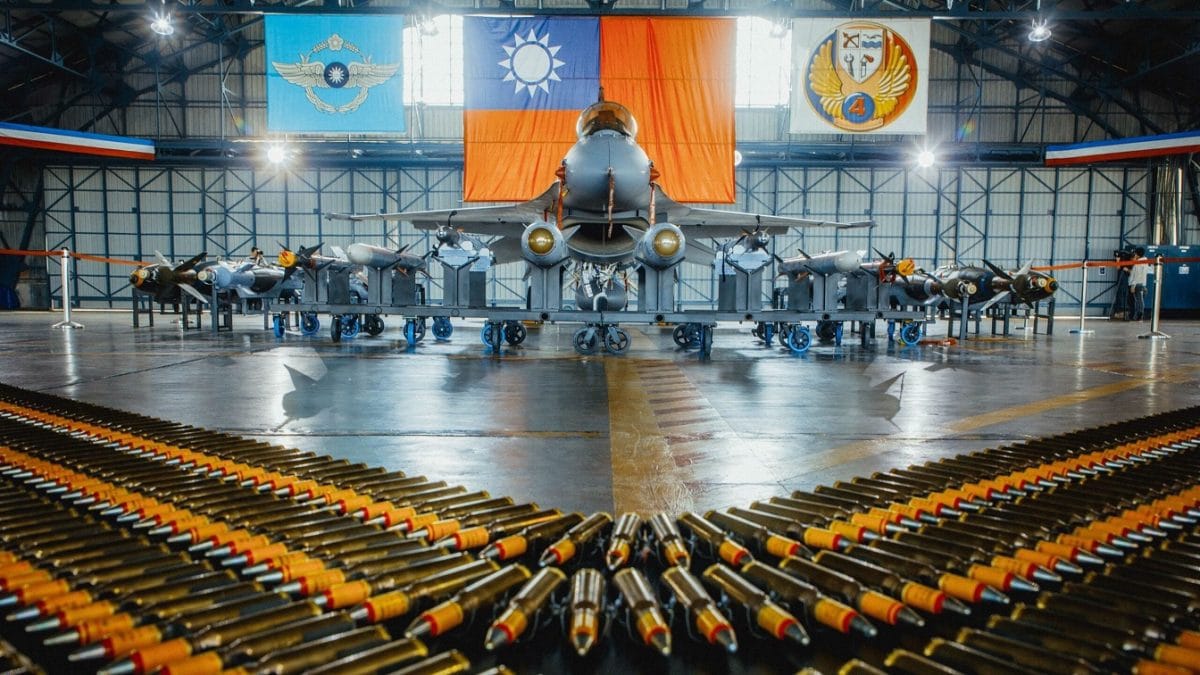
New Taiwan F-16V fighter jet. Image Credit: ROC government.
I fear all the U.S. hysteria thought to help deter China and more tightly embrace Taiwan is actually making it more likely. At some point over the next decade or so, a Chinese move to force unification is likely. I think U.S. analysts need to read Sun Tzu. There is a good probability that when China does make a move, it will not be kinetic but will draw on its large menu of non-kinetic means of coercion to force the issue. The PRC has a range of economic, cyber, and other means to strangle Taiwan without firing a shot. That would force the U.S. to escalate, probably first with Russia-level sanctions and probably with military force.”
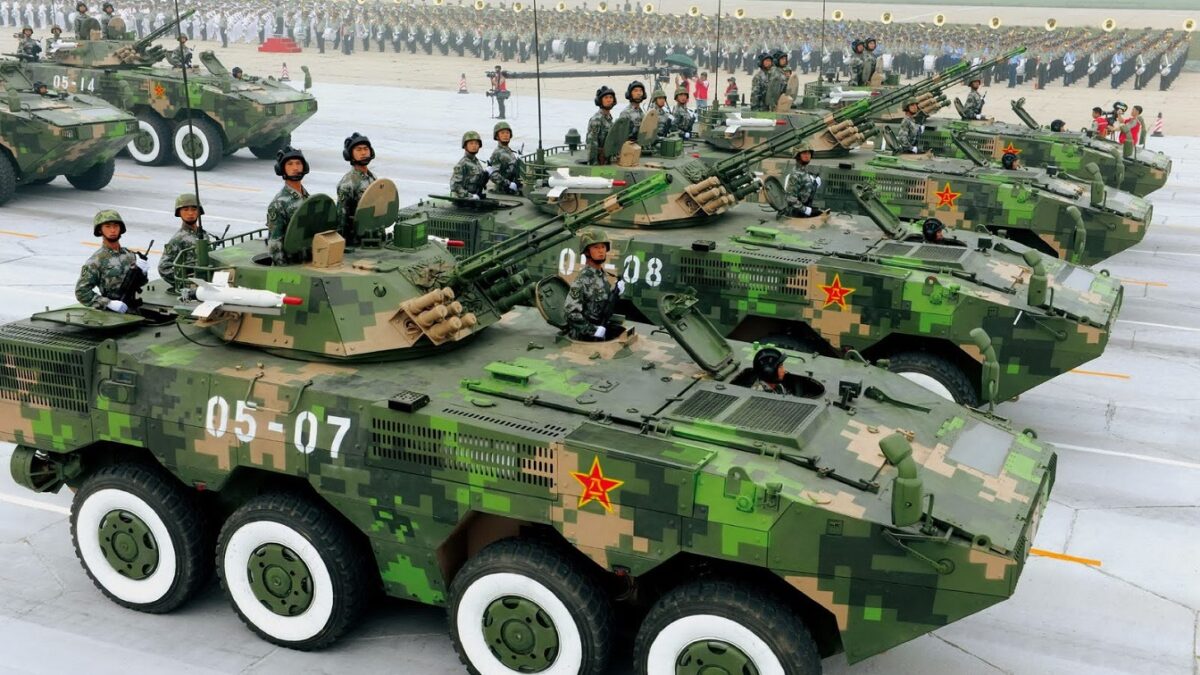
ZBL-08 armored vehicle from China. Image Credit: Creative Commons.
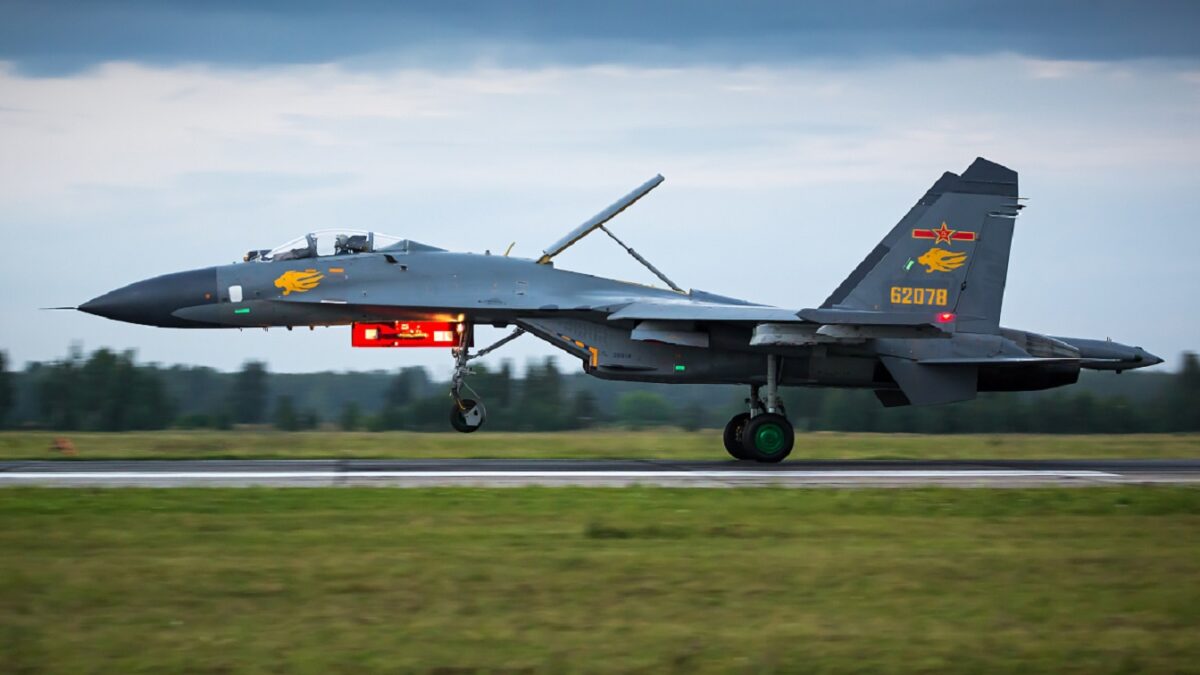
China J-11 Fighter. Image Credit: Creative Commons.
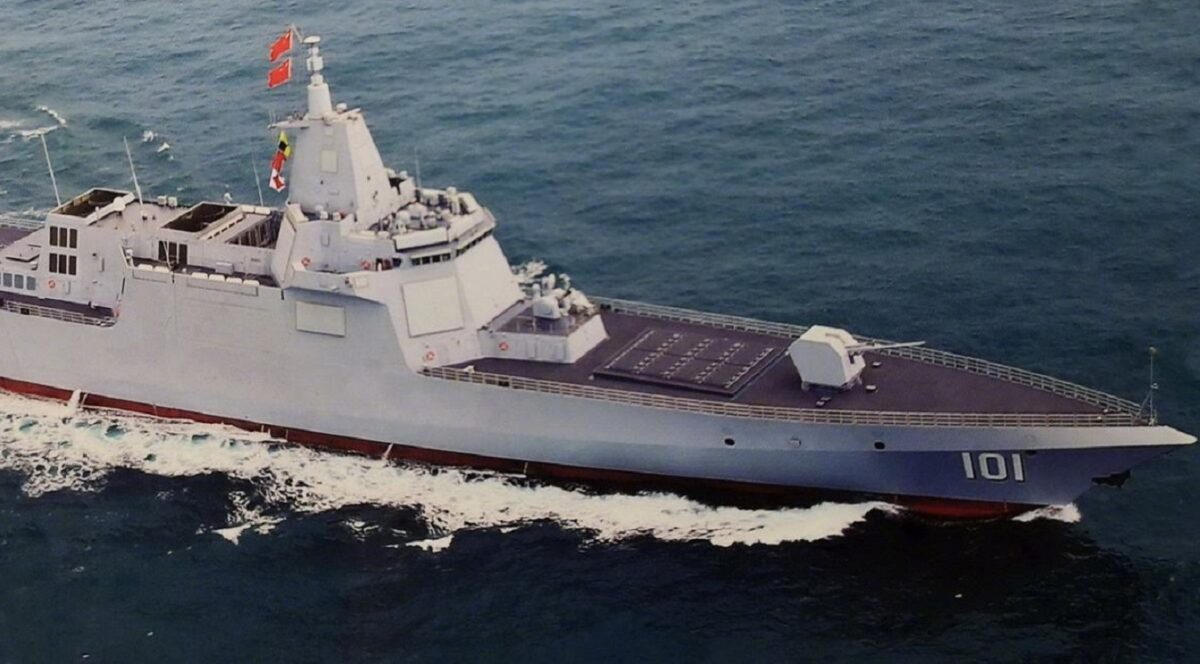
Chinese Type 055 Destroyer.
Expert Biography: Harry J. Kazianis (@Grecianformula) serves as President and CEO of Rogue States Project, a bipartisan national security think tank. He has held senior positions at the Center for the National Interest, the Heritage Foundation, the Potomac Foundation, and Pacific Forum. Kazianis has also worked as a defense journalist, serving as Editor-In-Chief of the Diplomat and Executive Editor of The National Interest. His ideas have been published in the New York Times, Washington Post, Wall Street Journal, Newsweek, CNN, CNBC, and many other outlets across the political spectrum. He holds a graduate degree focusing on International Relations from Harvard University and is the author of the book The Tao of A2/AD, a study of Chinese military modernization.

